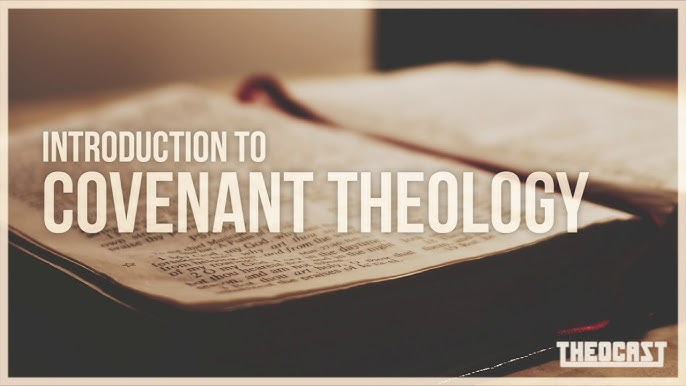Covenant theology stands as a foundational framework within Christian theological discourse, tracing its roots deep into the soil of biblical interpretation. It offers a comprehensive lens through which believers can understand the unfolding narrative of God’s relationship with humanity. From the dawn of creation to the culmination of history, covenant theology weaves a tapestry of divine promises, revealing the immutable character of God and His redemptive purposes for His people.
At its core, covenant theology rests upon the concept of covenant—a solemn agreement or pact between God and humanity, established on the basis of His grace and faithfulness. These covenants serve as the backbone of biblical history, shaping the trajectory of salvation and illuminating the character of God.
The Covenant of Redemption, often regarded as the eternal covenant within the Godhead, lays the groundwork for all subsequent covenants. It reflects the triune God’s plan for the salvation of humanity, with each member of the Trinity playing a distinct role in its fulfillment. This covenant underscores the unity of purpose within the Godhead and highlights the sovereignty of God in orchestrating redemption.
Moving forward, the Covenant of Works emerges in the pristine garden of Eden, where God establishes a covenant with Adam as the federal head of humanity. In this covenant, obedience leads to life, while disobedience results in death—a principle that reverberates throughout human history. Despite Adam’s failure, the echoes of this covenant resonate in the conscience of humanity, pointing to the need for a Savior who would fulfill its demands on behalf of fallen humanity.
The Covenant of Grace emerges as the cornerstone of redemptive history, offering hope and restoration to a broken world. It finds its ultimate fulfillment in Jesus Christ, the Mediator of the new covenant, whose sacrificial death on the cross secures salvation for all who believe. Through His atoning work, Christ inaugurates a new era of grace, reconciling sinners to God and inaugurating the kingdom of God on earth.
Within the framework of covenant theology, the Old Testament bears witness to God’s faithfulness in upholding His covenant promises despite human frailty and rebellion. The Abrahamic Covenant, with its promise of blessing to all nations through Abraham’s seed, anticipates the coming of the Messiah and the expansion of God’s kingdom to the ends of the earth. The Mosaic Covenant, although temporary in nature, serves as a schoolmaster, revealing the holiness of God and the need for a perfect sacrifice to atone for sin.
The Davidic Covenant shines as a beacon of hope, promising an eternal kingdom and a righteous king whose reign will bring peace and justice to the world. In Jesus Christ, the promised Son of David, this covenant finds its fulfillment, as He reigns as King of kings and Lord of lords, establishing His kingdom of righteousness and peace.
As believers journey through the pages of Scripture, covenant theology provides a roadmap, guiding them through the complexities of biblical narrative and theological reflection. It underscores the unity of Scripture, revealing the seamless tapestry of God’s redemptive purposes woven throughout history. Moreover, it invites believers to participate in the ongoing drama of redemption, as heirs of the covenant promises secured in Christ.
Conclusion
Covenant theology stands as a profound testament to the faithfulness and sovereignty of God. It invites believers to marvel at the grandeur of God’s plan of salvation, which spans the ages and encompasses all of creation. Through its rich tapestry of covenant promises, believers are invited to anchor their faith in the unchanging character of God and to participate in the unfolding drama of redemption, as heralds of the kingdom of God in a broken and needy world.

